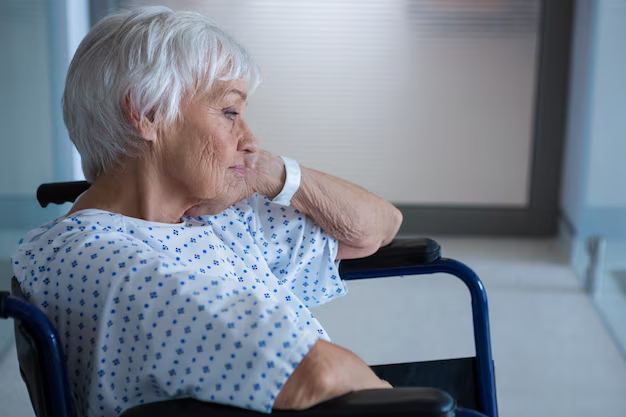Understanding Parkinson's Disease in Women: What You Need to Know
How does Parkinson's affect women? Can women get this disease? These are essential questions that call for greater awareness and understanding. While Parkinson's disease (PD) is often studied in the context of its impact on men, it's crucial to recognize that it also affects women and can do so in unique ways. Exploring the intricacies of Parkinson's in women not only sheds light on the gender-specific aspects of this condition but also helps demystify some common myths.
What Is Parkinson's Disease?
Parkinson's disease is a neurodegenerative disorder that primarily affects dopamine-producing neurons in a part of the brain called the substantia nigra. It is known for gradually impairing movement and is classified as a disorder of the central nervous system.
Key Symptoms of Parkinson's
- Tremor: Often starting in one hand, tremors are common and recognizable.
- Muscle rigidity: Stiffness in the limbs and trunk can lead to discomfort and pain.
- Bradykinesia: This refers to the slowness of movement, a hallmark of the disease.
- Impaired balance and coordination: These issues can lead to falls and further complications.
While these symptoms are prevalent in both men and women, the manifestation in women can present some unique considerations.
Can Women Get Parkinson's Disease?
Yes, women can get Parkinson's disease, although it is slightly more common in men. The reasons behind this gender discrepancy remain a topic of ongoing research, with factors like hormones, lifestyle, and genetics under evaluation.
Important Considerations for Women
- Hormonal Influences: Estrogen may play a protective role against the development of Parkinson's, as seen in women who experience menopause at a later age having a lower risk.
- Diagnosis and Progression: Some studies suggest women may receive a diagnosis later than men and experience a different progression in symptoms and severity.
Exploring the Causes: Why Does Parkinson's Occur?
Understanding why Parkinson's occurs remains a challenge. However, several factors have been identified that might contribute to its development:
Genetic Factors
While the exact genetic link to Parkinson's is complex, certain genetic mutations have been associated with increased risk. Yet, these mutations are responsible for only a small percentage of cases.
Environmental Factors
Exposure to certain environmental factors, like pesticides and heavy metals, has been linked to an increased risk of developing Parkinson's. Women who have worked in agriculture or other industries involving such exposures may be at a slightly higher risk.
Lifestyle Factors
Lifestyle and dietary habits may also play a role in the risk of Parkinson's. Regular exercise and a balanced diet are often recommended to potentially mitigate risk factors.
The Unique Journey of Parkinson's in Women
Symptoms and Treatment: Variations in Women
When it comes to symptoms, women may experience more tremors and have a higher likelihood of depression and anxiety compared to men with PD.
Challenges in Diagnosis
- Misdiagnosis: Women might receive a misdiagnosis or delayed diagnosis, partly due to differences in symptom presentation.
- Underrepresentation in Research: Historically, women have been underrepresented in clinical trials, leading to less gender-specific data on effective treatments.
Medication and Side Effects
Parkinson's treatments, such as Levodopa, are standard across genders, but women may experience different side effects due to metabolic differences.
Enhancing Quality of Life for Women with Parkinson's
Support Networks
Support from family, friends, and support groups can significantly affect the quality of life. Women often seek and benefit from more communal and peer support compared to men.
Alternative and Complementary Therapies
- Physical Therapy: Tailored exercises can help in maintaining muscle strength and flexibility.
- Speech Therapy: As speech may be affected, regular sessions can help maintain communication skills.
- Mental Health Support: Addressing emotional health is crucial, considering the increased prevalence of anxiety and depression.
Research and Gender-Specific Approaches
Advocacy for more gender-specific research is growing. Understanding the biological and social differences can lead to more tailored therapies and interventions, improving outcomes for women with Parkinson's.
The Broader Impacts of Parkinson's on Women and Society
Parkinson's disease doesn't only affect the individuals diagnosed but also has broader social and economic impacts. These can include the need for long-term care, financial costs associated with treatment, and the opportunity cost of leaving the workforce prematurely, which women might face as caregivers or patients.
Empowering Women Through Education and Awareness
Raising awareness about Parkinson's in women can empower patients and their families. Early recognition and understanding the subtle differences in symptoms can lead to more timely interventions and better outcomes.
Insights and Reflections
Parkinson's disease remains a complex condition with varied manifestations across genders. Women face unique challenges regarding diagnosis, treatment, and daily life with Parkinson's. By increasing awareness, promoting gender-specific research, and fostering supportive communities, we can better address the needs of women living with this condition. Understanding these nuances not only aids those directly affected but also enriches our collective knowledge of this neurological disorder.
📝 Summary for Women Navigating Parkinson’s Disease
- Yes, women can get Parkinson’s disease. Although it is slightly less common than in men, it’s equally impactful.
- Look for symptoms like: Tremors, muscle rigidity, slowness of movement, and impaired coordination.
- Unique challenges for women include:
- Hormonal influences possibly affecting disease risk and progression.
- Potential differences in symptom presentation and medication side effects.
- Support and treatment strategies:
- Engage in support networks and therapy options for holistic care.
- Advocacy for gender-specific research and resources is essential.
Embracing awareness and proactive approaches can lead to better management and support for women at every stage of their Parkinson's journey. 😊

Related Articles
- Are There Environmental Causes Of Parkinsons
- Can Alcohol Cause Parkinson's
- Can Concussions Cause Parkinson's
- Can Females Get Parkinson Disease
- Can Head Trauma Cause Parkinson's
- Can Parkinson Disease Cause Dizziness
- Can Parkinson's Affect Eyesight
- Can Parkinson's Affect Memory
- Can Parkinson's Affect Speech
- Can Parkinson's Affect Vision
